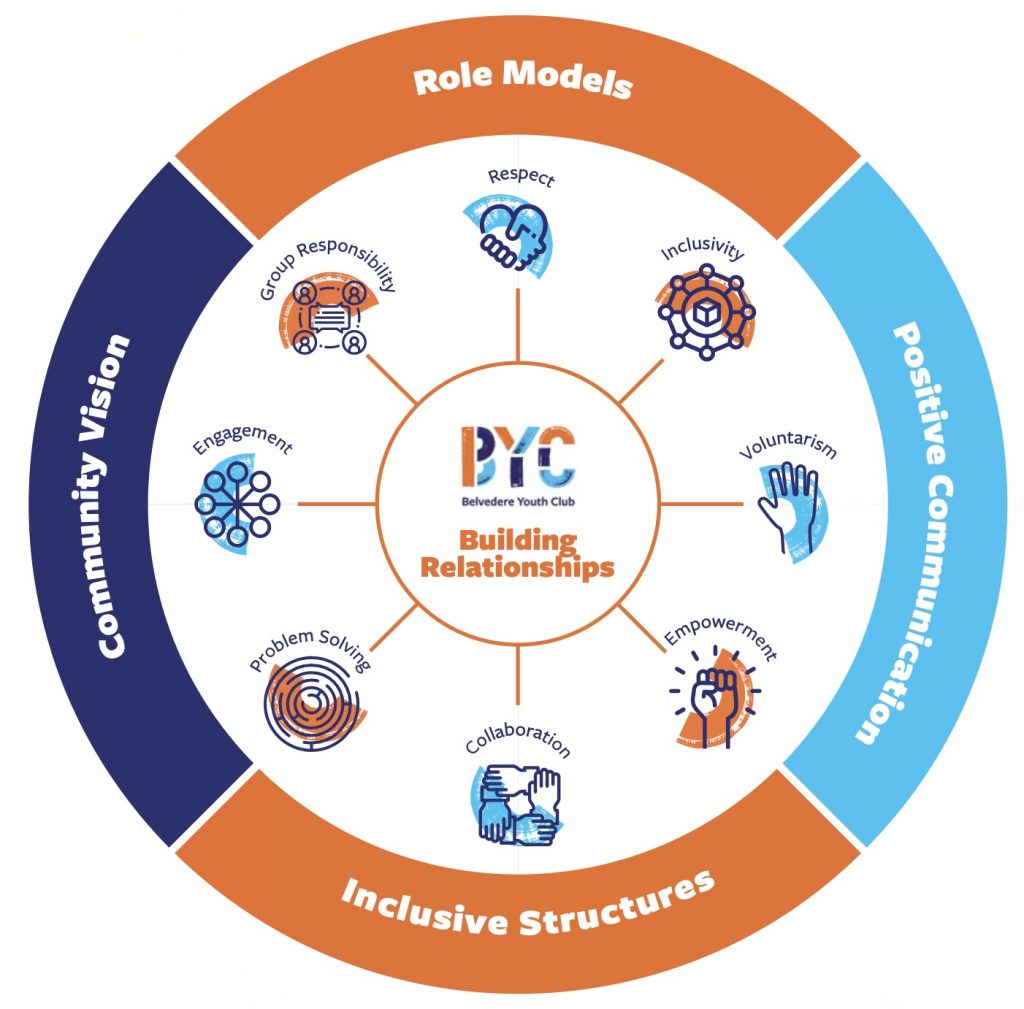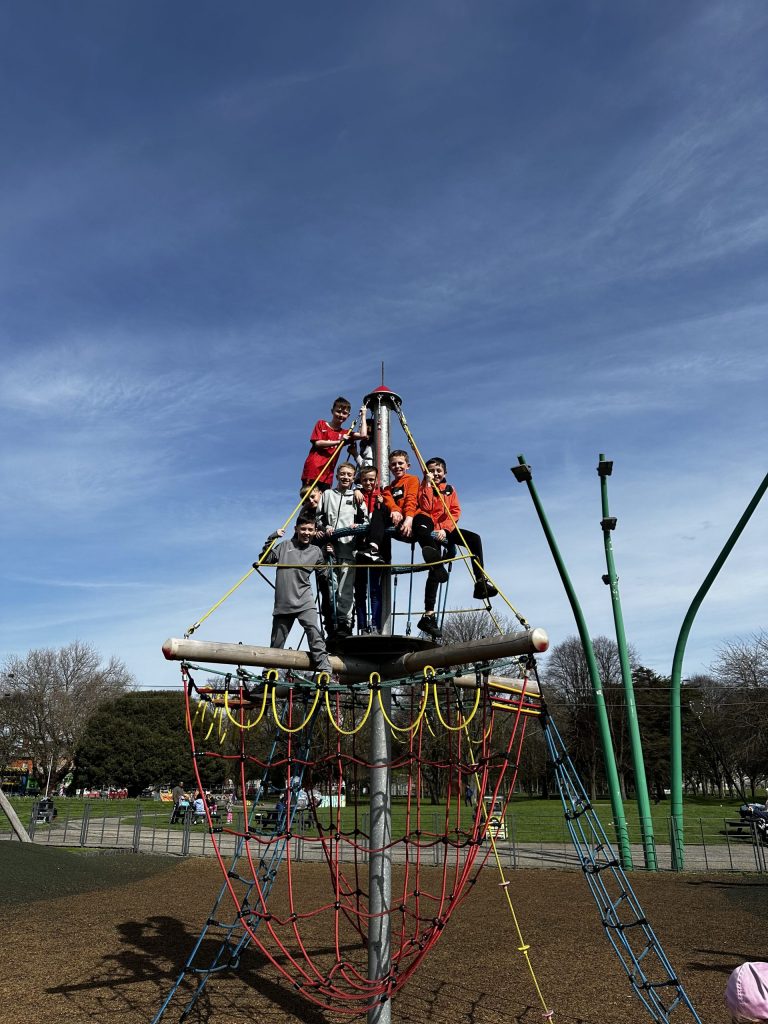BYC is the first Youth Club in Ireland to have such an ambitious plan for RP. If youth workers and youth service are using RP in their daily work (see for examples these testimonies from Cabra for Youth or Clare Youth Service), no other youth organisation has undertaken the project of becoming a Restorative Hub in the community, implementing RP in all aspects of the work inside the organisation with the hope to impact the local community, outside of BYC’s walls.
There is quite a natural “fit” between RP and Youth Work because youth work also focuses on building relationships. The RP model developed by BYC encapsulates the connections between RP and Youth Work values. However, through interviews with the Youth Workers (YW) and especially Jonathan, the Youth Work Team Leader, we can highlight more specifically what RP is bringing to Youth Work in BYC.

YW in BYC mostly work with groups. It is not a Youth Organisation designed to offer a one-to-one service. The team is often well-equipped to build relationships with groups. RP have supported them in refining their interactions with each group member and in being more aware of one-to-one dynamics. The check-in circle, when offered at the beginning of the group session, offers a way of assessing each young person’s mood and energy level. It opens the opportunity to further check in during the session if one Young People (YP) has expressed a difficulty. The communication framework restorative language offers (no blame, expression of feelings and needs) allows each person individually to connect more authentically with each other. It has proven to be beneficial in building better one-to-one relationships. It is also valuable inside the team for YW working together with a group, for supervision or support sessions. It gave YW tools to improve individual relationships when they were more used to handle group dynamics.

When it comes to responding to incidents or challenging behaviours (what we call the “reactive” element of RP, as opposed to the “pro-active” aiming at building and maintaining relationships), first, RP have given the team more awareness and tools on the importance of emotional regulation: how to invite YP or co-workers to regulate and express what emotions they are experiencing before handling the incident itself. Secondly, RP help the team to reintegrate YP who may have been part of an incident, or when there was a break out in relationships. Before the implementation of RP, once an incident was dealt with, YP would have reintegrated their group without any process or awareness of what the YP involved, or the group would need to put the incident behind fully. RP has improved this significantly.
YW also acknowledge how RP create a more empowering dynamic. YP empowerment is a core value of youth work. However, it is not always an easy task. Simple processes like giving everyone a voice in the circle, developing listening skills, and working from a place of equality are very helpful. Working restoratively and being aware of what fairness is about have implications for decision-making processes used in the club – and we will come back to this in an upcoming article. In that sense, YW feel that RP is empowering YP to be more engaged in decisions made by the youth team, and as YW, they feel empowered in engaging more with the Management team regarding decisions impacting their work. RP tends to flatten the hierarchy, which is perceived as very positive in youth work: everyone has a voice, and everyone tends to listen more and hear what is being voiced. At the same time, this can be challenging for YW or Managers who may be used to being more “in charge”. This has to be acknowledged too. Ultimately, responsibilities fall on the adult and/or on the Manager. Finding a balance that suits everyone is also part of a restorative approach.

